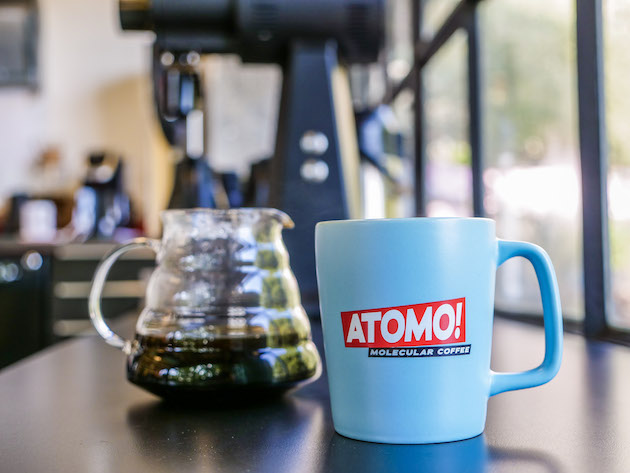The agritech company Atomo Coffee, which claims to have developed the first bean-free “molecular coffee,” has announced it has closed an additional $9 million more in seed funding.
The funds will be used to build the company’s first production facility in Seattle’s industrial SoDo district, with plans to bring Atomo Coffee to market in 2021.
Several firms with hefty investment experience in agricultural-alternative based food techs are behind the latest funding round, including Hong Kong’s Horizons Ventures (Impossible Foods, Spotify, Zoom) and S2G Ventures (Beyond Meat, Ripple). The funding round follows Atomo’s initial $25,000+ Kickstarter campaign and a $2.6 million seed round led by Horizons Ventures last year.
Like all startups turning to venture capital to bring a product to market, Atomo’s pitch begins with a problem then proposes a solution. In this case the problem is climate change, and specifically the carbon footprint of coffee production.
“Climate change is wreaking havoc on the global coffee industry; affecting quality, contributing to deforestation and driving a variety of wild coffee species into possible extinction,” the company said in an announcement today.
The announcement did not address the underlying factors contributing to climate changes throughout the world’s coffee-growing corridor, the decades of low prices paid to coffee producers that have encouraged volume-based monoculture coffee production, nor the fact that much of the coffee industry’s carbon footprint is associated with production and retail operations in traditional consuming countries.
Atomo says it has “reverse-engineered” the coffee bean in order recreate sought-after flavor profiles of coffee. The company says the production process involves upcycled plant materials sourced through verifiable supply chains that would otherwise be discarded as waste.
“Our flagship grounds formula is made of upcycled plant materials such as pits, seeds, and stems from locally grown agriculture, mirroring the process of traditional coffee beans,” Atomo Chief Scientist and Co-FounderJarret Stopforth said in today’s announcement. “Atomo’s magic comes from our proprietary bioreactive and thermal processes.”
Nick Brown
Nick Brown is the editor of Daily Coffee News by Roast Magazine.







Comment